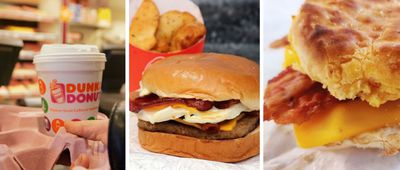This is a post by Odysseas Papadimitriou, the founder and CEO of Card Hub, a website that helps consumers find the best credit cards and prepaid cards for their needs.
Prepaid cards are essentially the new kid on the personal finance block, and their popularity is building quickly. Well-known financial operators like Chase and American Express launched prepaid card deals in recent months, and celebrities like Lil Wayne, Suze Orman, and Magic Johnson will soon become prepaid card endorsers. The burgeoning number of offers makes it harder to choose the right prepaid card deal, and picking the wrong one could cost you as much as $300 a year in fees. So we at Card Hub decided to sort out the market for prepaid card deals to help you identify the best and worst options for each consumer need.
A prepaid card is essentially a debit card's first cousin from the side of the family that doesn't use a checkbook. In other words, it's a debit-based product that isn't linked to a checking account but lets you load money via direct deposit and other means; automatically pay bills online; make purchases where plastic is accepted; and withdraw cash from ATMs.
Prepaid cards play a variety of roles in today's plastic-heavy financial system. The overlapping utility first made them the obvious alternative to checking accounts when the Federal Reserve capped debit card swipe fees on October 31, 2011 and banks responded by raising checking account fees and cutting debit card rewards programs. As a financial literacy teaching tool, they provide young people with valuable experience using plastic and dodging fees without the threat of overspending. Additionally, the right prepaid card deal can serve as a low-cost means of check cashing for someone whose employer doesn't offer direct deposit.
And with that, here is our list of the best and worst prepaid card deals for each of these applications.
Alternative Checking Account:
Best Prepaid Card Deal:
Green Dot Gold Prepaid Visa Card -- This card is free to use as an alternative checking account when you load at least $1,000 a month and make withdrawals at any of GreenDot's 22,000 ATMs nationwide.
Worst Prepaid Card Deal:
AccountNow Visa Classic --This card's lack of a monthly fee suggests it's a good deal, but underlying costs will likely make it very expensive. You must pay to access your own money: cardholders have to shell out $1 whenever they make a purchase and $2.50 plus ATM-owner surcharges when making withdrawals.
Rationale:
The first step in choosing a prepaid card deal to serve as a checking account is to rule out cards that don't offer direct deposit or online bill pay.
You need a way to load your paycheck and pay providers that don't accept plastic, and if your prepaid card doesn't help you do this, you'd also need a traditional bank account (which defeats the purpose of a prepaid card) or have to rely on third-party check cashing and bill pay (which gets pricey).
With the obviously unsuitable cards out of the way, focus on minimizing the most important charges, typically monthly fees, ATM withdrawal fees, and purchase fees. The GreenDot Card rises to the top because it doesn't charge a monthly fee when you load at least $1,000 a month, offers free withdrawals at in-network ATMs, and assesses no fees for making purchases.
Financial Literacy Teaching Tool:
Best Prepaid Card Deal:
The Approved Card from Suze Orman -- Yes, Orman's prepaid card charges a $3 monthly fee, but it also makes it easy to avoid costly ATM withdrawal fees: withdrawals are free for 30 days after you make a direct deposit or bank transfer of $20 or more. This card also doesn't charge purchase fees, so a young person can access his or her allowance without seeing it consumed by fees.
Worst Prepaid Card Deal:
NetSpend Prepaid MasterCard - Fee Advantage / ACE Elite Prepaid Visa - FeeAdvantage Plan -- These cards, both of which are issued by NetSpend, have the same costly terms. When you load less than $500 a month, as is likely for a child's allowance, both cards assess a $9.95 monthly fee. They also charge $2.50 for ATM withdrawals; NetSpend maintains a small nationwide ATM network, so you'll probably have to pay an ATM-owner surcharge as well.
Rationale:
A prepaid card is a good way to dole out an allowance because it gives your child practice using plastic in a low-risk environment and lets you review purchase history with them online. Use this as a teachable moment on the importance of budgeting, comparison shopping, etc.
Because you're likely to load relatively small amounts when using a prepaid card in this manner, you want one that charges a low fixed monthly fee rather than linking fees to minimum deposit requirements. Moreover, purchases and ATM withdrawals are the transactions that children are likely to make most, so minimizing these fees is critical. Suze Orman's card excels here due to its $3 monthly fee, free withdrawals for 30 days after a small bank transfer, and absence of purchase fees.
Check Cashing Tool:
Best Prepaid Card Deal:
Chase Liquid Card-- This card provides access to Chase banking services for a low monthly fee. Cardholders can make withdrawals for free at Chase ATMs and, most importantly, load checks for free at bank branches.
Worst Prepaid Card Deal:
Most other cards -- Only two of the 20 popular prepaid cards evaluated in Card Hub's 2012 Prepaid Card Report let you load checks directly.
Rationale:
Millions of Americans operate outside the traditional banking system and work jobs that don't offer direct deposit, which means they rely on check cashing stores to access their money. A prepaid card that does this for free or for a low monthly fee trumps cards that require you to load funds with cash, direct deposit, or a bank transfer. There's simply no point in paying to cash a check and then paying to load cash with a MoneyPak, which is why the ability to load checks is integral. As long as the fees don't exceed the cost of your usual check cashing system, the benefit of having plastic is reason enough to make a change.
We operate in a financial landscape where cash is no longer king. You need plastic to do things like rent a car, reserve a hotel room, and make purchases online -- and a prepaid card is a very attainable form of plastic. The right prepaid card plan can be even cheaper to use than a traditional checking account/debit card. You just have to know what features to look for and what fees to be concerned about. Now that you do, you can navigate the growing world of prepaid card deals with confidence.








